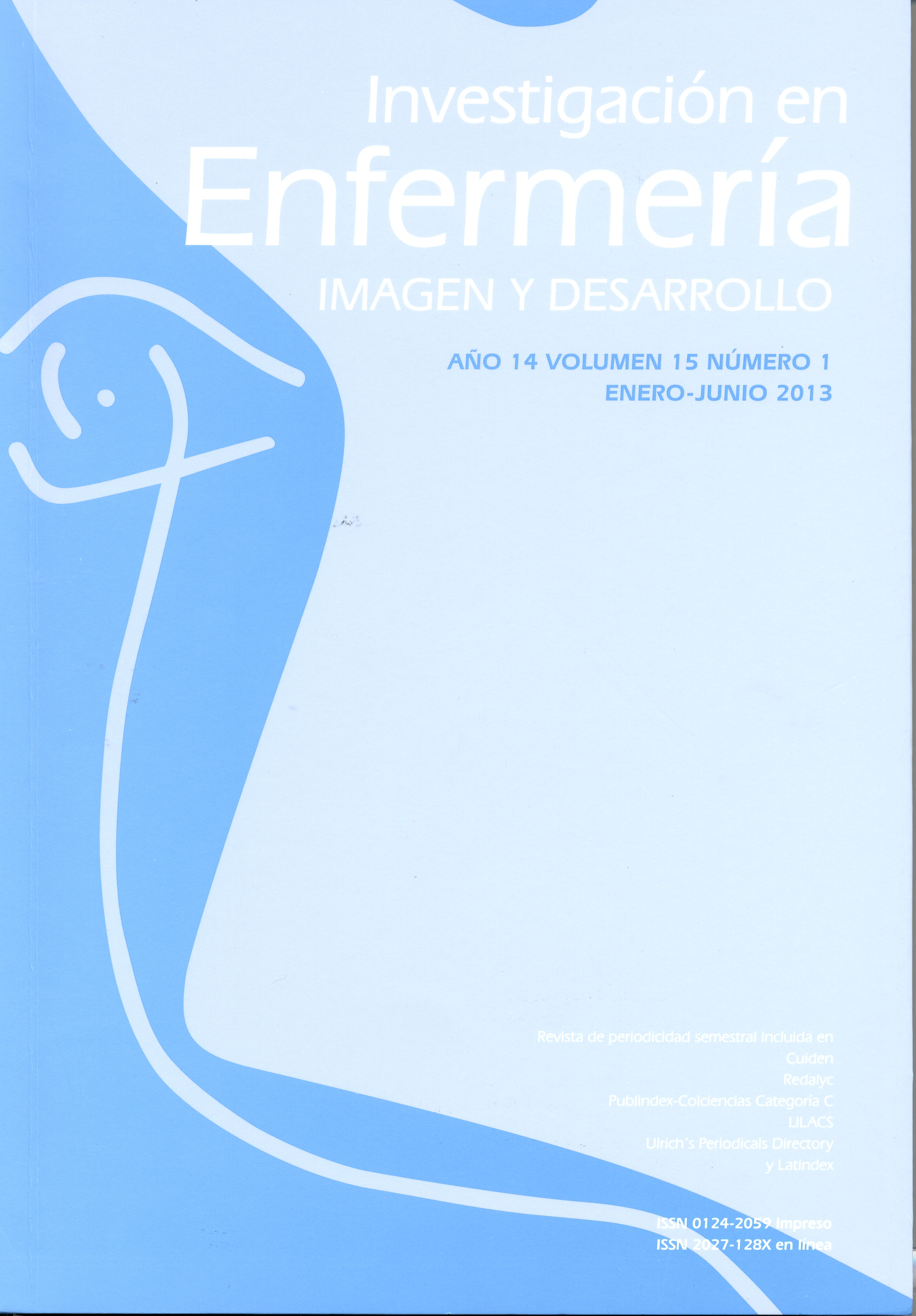Resumen
El artículo presenta los resultados de un estudio realizado en la práctica clínica oncológica a través de una situación de enfermería, con el objetivo de analizar el cuidado que trasciende más allá de la vida de una paciente. Se parte del análisis de experiencias propias de la práctica, lo que aporta al conocimiento disciplinar de enfermería. Para el análisis de esta teoría se retoma la estructura jerárquica del conocimiento en enfermería y se pasa del metaparadigma a la filosofía, de esta a los conceptos metaparadigmáticos, para finalizar analizando los patrones de conocimiento que la situación refleja. El modelo que orienta la guía empleada es el modelo conceptual de enfermería como cuidado que plantean Boykin y Schoenhofer. Se utilizó la guía para el análisis de situaciones de enfermería desarrollada por el Grupo de Cuidado al Paciente Crónico y su Familia de la Universidad Nacional de Colombia, lo que permitió retomar la narrativa de una experiencia vivida por la autora en la práctica clínica en el Instituto Nacional de Cancerología ESE para identificar los componentes teórico-conceptuales del cuidado trascendente. La situación analizada refleja un cuidado de enfermería que puede ser catalogado como una situación de enfermería, donde se identifican los conceptos metaparadigmáticos de la disciplina profesional, la visión filosófica de reciprocidad y los conocimientos que requiere el cuidado que trasciende. El análisis epistemológico y ontológico de la experiencia de cuidado vivida en la situación de enfermería con una mujer adulta que se encontraba en la etapa final de su vida permitió a la enfermera superar el día a día de su rutina clínica y reconocer cómo al identificar los diferentes elementos que clarifican las dimensiones y posibilidades que encierra la enfermería, vista como cuidado, se logra trascender y se generan mayores insumos para cualificar la propia práctica y la de los colegas.
ABSTRACT
The present paper presents the results of a study carried out during oncologic clinical practices as a nurse, with the objective of analysing the role of patient care after the patient has died. It is based on experiences gathered during the practice, which supposes a contribution for the discipline of nursing. For the analysis of this theory the hierarchic structure of knowledge in nursing is revisited, and from meta-paradigms we move onto philosophy and from this onto meta-paradigmatic concepts, to conclude by analysing the patters of knowledge the situation reflects. The model which directs the guidelines used is the conceptual model of nursing as care, presented by Boykin and Schoenhofer. The guidelines were used for the analysis of nursing situations developed by the Care for Chronic Patients and their Families Group of the Universidad Nacional de Colombia, which allowed us to include the narrative of an experience lived by the author in her practise at the National Institute for Cancer Research (ESE) in order to identify the theoretical-conceptual components of transcendent care. The situation analysed reflects a nursing care that can be catalogued as a nursing situation, where the meta-paradigmatic concepts of the professional discipline, the philosophical view of reciprocity, and the knowledge required by transcendent care can be identified. Epistemological and ontological analysis of the care experience lived in the nursing situation with a middle-aged woman in the final stage of her life, allowed the nurse to see past her daily clinical routine and understand how, by identifying the different elements that clarify the dimensions and possibilities enclosed in nursing, viewed as care, it is possible to transcend and to create better tools for qualifying our own practise and that of our colleagues.
La revista Investigación en Enfermería. Imagen y Desarrollo se encuentra registrada bajo la licencia Creative Commons Reconocimiento 4.0 Internacional. Por lo tanto, esta obra se puede reproducir, distribuir y comunicar públicamente en formato digital, siempre que se reconozca el nombre de los autores y a la Pontificia Universidad Javeriana. Se permite citar, adaptar, transformar, autoarchivar, republicar y crear a partir del material, para cualquier finalidad (incluso comercial), siempre que se reconozca adecuadamente la autoría, se proporcione un enlace a la obra original y se indique si se han realizado cambios. La Pontificia Universidad Javeriana no retiene los derechos sobre las obras publicadas y los contenidos son responsabilidad exclusiva de los autores, quienes conservan sus derechos morales, intelectuales, de privacidad y publicidad.
El aval sobre la intervención de la obra (revisión, corrección de estilo, traducción, diagramación) y su posterior divulgación se otorga mediante una licencia de uso y no a través de una cesión de derechos, lo que representa que la revista y la Pontificia Universidad Javeriana se eximen de cualquier responsabilidad que se pueda derivar de una mala práctica ética por parte de los autores. En consecuencia de la protección brindada por la licencia de uso, la revista no se encuentra en la obligación de publicar retractaciones o modificar la información ya publicada, a no ser que la errata surja del proceso de gestión editorial. La publicación de contenidos en esta revista no representa regalías para los contribuyentes.


